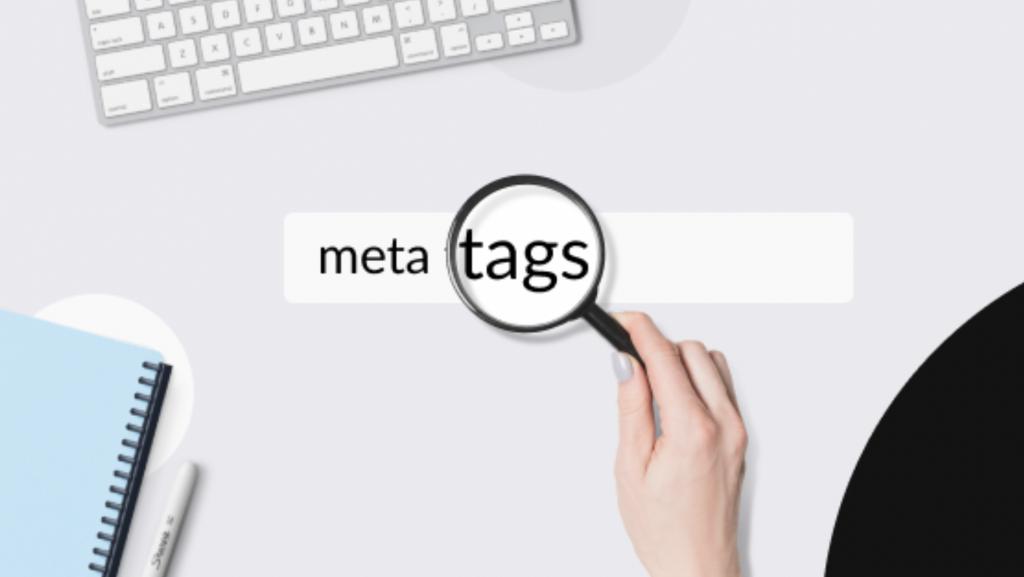Meta descriptions are a vital part of anyone’s SEO toolbox. A well-crafted meta can go a long way in boosting click-through rates, rankings, and yes, you can expect more traffic on your site.
But in the sometimes elusive world of SEO, it’s hard to know what is what when it comes to creating the ‘perfect’ meta description.
Well, today you’re in luck.
We’re going to cover everything you need to know about optimising your meta descriptions, some good practices, and some things to watch out for.
What is a meta description exactly?
A meta description is a short, compact summary of information on a webpage. It appears on the Search Engine Results Page (SERP). More specifically, it’s an HTML tag that sits just below the page title and URL.
Like this:

For the coding buffs out there, here’s what that looks like in code:
<head> <meta name=”description”
content=“This is your Meta Description text.”></head>
What does a meta description do?
Any good meta description acts as a teaser for whatever’s on your webpage. Whether that’s your landing page, killer blog, or online shop, meta descriptions allow you to influence click-through rates by making targeted information about your page visible within the search results.
Why are meta descriptions so important?
Because first impressions do count. And in the SERPs, that’s exactly what a meta description is – a chance for you to grab your audience and reel them in.
Think of your meta description as an advert for your web page – in the same way that a pet shop’s window lures you in with pictures of puppies and kittens – the meta is usually filled with meaningful language that will entice a potential customer.
Meta descriptions influence your SERP ranking
While meta descriptions don’t directly influence your rankings, they can drive higher click-through rates which is a key factor in influencing your SERP ranking. The more clicks you get – the higher you will rank in the SERP. The higher you rank – the more organic traffic you’re likely to catch.
How to write (fantastic) meta descriptions
Cooking up the perfect meta description is a bit like following a recipe in a cooking competition. You need all the core ingredients to make it work, but that’s just the bare minimum. To stand out from the crowd, you need the added value. Here are some tips on optimising your meta descriptions:
Make it the right length
Search engines like Google prefer meta descriptions to be between 150 and 300 characters. If yours is too long, Google will automatically shorten it, which could tamper with the essence of your message. Too short, and chances are you’re not using that prime real estate to its full potential. Remember that meta descriptions are a chance to make your page shine, so don’t leave it up to the tech gods at Google. You may lose out on valuable click-throughs.
Keep it to the point
Think about the last time you googled something. You weren’t exactly reading through all the metas and then deciding which page to visit. No. You were probably fast, brutal and decisive in this process. To catch someone’s attention you need to:
- Be specific about what you’re offering.
- Keep your audience curious enough to make the leap and click on your page.
It’s not easy to distill an entire landing page into a few characters, but making it simple and easy to follow will pay off big time.
Make it actionable
Use language that people can relate to and act on. Don’t just say what’s on your webpage, because that’s both boring and probably obvious from looking at your header.
Instead, create metas that give people something to use, understand and engage with. Make your page useful before they’ve even clicked on it. Use leading words like:
Explore WA’s exclusive range of…
Understand why…
Discover 7 ways to boost your immune system…
Let your USPs and CTA take charge
Meta descriptions allow you the ideal opportunity to actually communicate your USPs (Unique Selling Points) in a simple and straightforward format. If you’re thinking on earth are my USPs then this is a great opportunity to think about what makes your business better than the next. To polish it off at a simple CTA to bring your message home.
Australia’s leading organic food subscriptions box. Get 50% off when you sign up.
Already thinking about your next holiday? Discover world-class wineries right here in WA. Get personalised travel advice from the experts at…
Premium men’s formal wear at affordable prices. Look smart this season with our range of tailored suits, ties, and more. Shop now and receive up to 70% off.
Include your keyword
Including your relevant keyword in your meta description is important to help your page rank for the content of your page. Try and put yourself in your customer’s shoes and understand what they’re searching for when they might be on the hunt for your product or service. Remember Google and other search engines are constantly trying to do their job of matching content with search intent better. Making this job easy for Google will pay off.
Can’t see your meta in SERPS? Don’t stress
Your search engine may override your meta description – no matter how perfectly you think you’ve crafted and coded the thing. If you’ve noticed this happening to your landing page – it’s because Google thinks that it’s found a better snippet to answer a given search query. That’s not a bad thing either – search engines these days are becoming (scarily) good at matching up search queries with content, so you can rest easy.
Lift your SEO game today
Need more help making sense of this SEO mumbo-jumbo? Optimising your content and boosting your rankings is easy with a professional Perth SEO agency. It’s time to stop stressing and let the experts get on with improving your SEO. Get in touch with a Perth-based SEO agency today.




